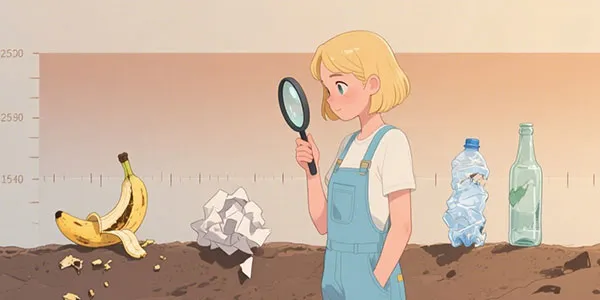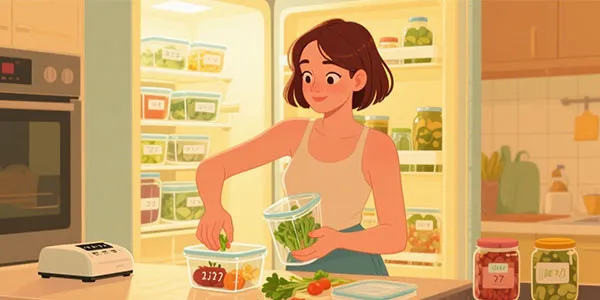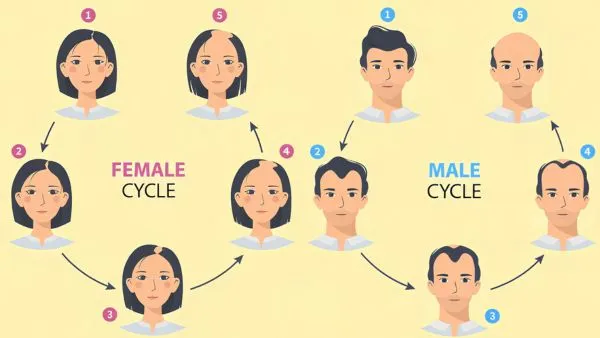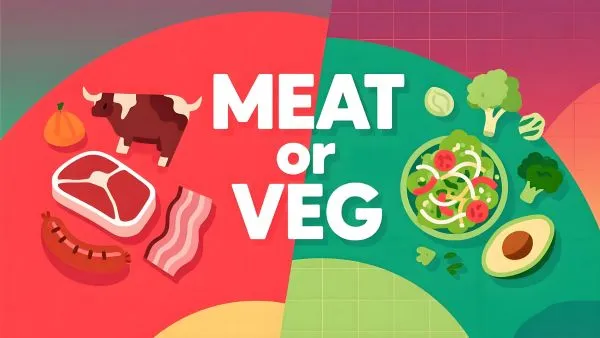
How Eco-Friendly Are You, Really?☀️
In a world where climate change headlines dominate the news and sustainability has become a buzzword, it's easy to think we're doing our part for the planet. But true eco-friendliness goes beyond reusable water bottles and recycling bins; it's about the everyday choices that add up, from how we commute to what we throw away.
1. Which material takes the longest to decompose in a landfill?

2. What's the most energy-efficient way to dry clothes?

3. Which of these produces the most greenhouse gas emissions?
4. Which type of bag is the most eco-friendly for grocery shopping?

5. Which of these is the best way to reduce food waste at home?

6. Which of these has the highest carbon footprint during production?
Environmentally friendly living is not only a popular trend but also a profound commitment to reducing carbon footprint, protecting natural resources, and maintaining ecological balance. As climate issues become increasingly severe, everyone needs to reflect on the impact of their actions on the Earth. Environmental protection is reflected not only in the significant energy transition but also hidden in the subtle choices of daily life. From this moment on, are you willing to truly examine your lifestyle habits and make more meaningful changes?
Energy and Carbon Footprint: Starting from Small Matters
Do you know that a tree can absorb up to 48 pounds of carbon dioxide per year? This is equivalent to the carbon emissions generated by a car traveling tens of miles. The use of renewable energy sources such as solar and wind power is undoubtedly an effective way to reduce household carbon emissions. But environmental protection goes far beyond that: choosing energy-efficient appliances, reducing the use of private cars, and even turning off lights at will are all contributing to carbon neutrality. Every small adjustment accumulates into a considerable ecological return.
Sustainable Consumption: Choosing to Influence the Future
In daily life, some seemingly ordinary decisions actually contain enormous environmental potential. For example, choosing locally produced vegetables and fruits instead of long-distance imported goods can significantly reduce carbon emissions during transportation. Repairing damaged items instead of discarding them directly not only reduces waste generation but also resists the 'disposable culture.' Truly sustainable consumption is to break out of the "buy, use, throw" cycle and re-examine our relationship with material goods.
Plastic Crisis: An Urgent Environmental Challenge
Global plastic pollution has reached crisis proportions. Humanity produces over 300 million tons of plastic annually, nearly 10 million tons of which ends up in the ocean, wreaking devastating damage to marine life and ecosystems. A single plastic bottle takes over 450 years to decompose in a landfill. Reducing plastic use, choosing reusable containers, and supporting a circular economy are no longer choices; they are imperatives. Will you join the "Reduce Plastic Use Movement"?
Your Environmental Potential: Testing and Progress
This article is also an inspiring 'test' that helps you evaluate your level of environmental protection, identify which aspects have been done well, and determine which areas can still be optimized. Whether you are an environmental advocate who has been deeply involved for many years or a newcomer to ecology, every small change can have a positive impact on the earth. Your environmental journey can start with the next choice: How environmentally friendly are you?


